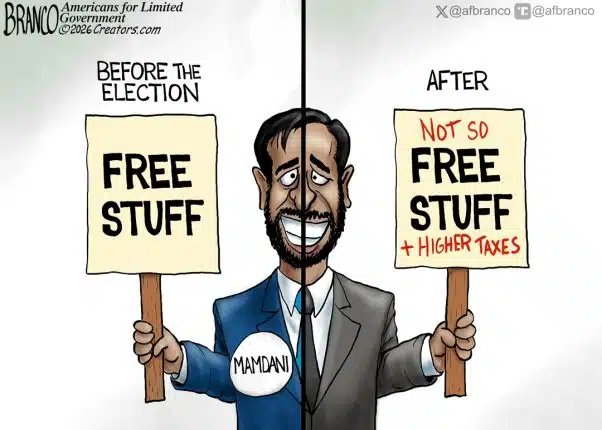By Rick Manning
As we approach Christmas it is time to take another look at one of the “gifts” Congress gave the U.S. and how it continues to be the gift that keeps on taking. It is a gift that has not only failed to do what it was supposed to do, it has had the exact opposite impact. Of course, that gift is the Renewable Fuel Standard (RFS). If Congress wanted to give the American people a gift this Christmas, they should repeal this un-environmental, expensive, job killing regulation.
The RFS was initiated to accomplish two main goals: Reduce foreign dependence on energy; and Improve energy efficiency and protect the environment.
Sadly, the mandate has failed at the two jobs it had.
Every year the amount of biofuel the federal government mandates be used goes up. It goes up regardless of the much-improved vehicle fuel mileage since its inception. The mandate continues to increase regardless of the number of electric cars on the road, or the increased amount of people taking public transportation in major cities. The RFS mandate has expanded so much it has now made the U.S. dependent on foreign sources of biofuel.
Yes, that’s right. The law passed by Congress in 2005, and “updated” in 2007, has turned one of its mandates, to reduce foreign dependency on energy, and increased it.
Thanks to a 15-billion-gallon biofuel mandate, the U.S. must import hundreds of millions of gallons of biofuel to meet, not the demand for the fuel, but the artificial requirement put on the U.S. consumer by the federal government. This happens because the U.S. does not have the infrastructure to produce more biofuels nor is there the demand. Primarily, the U.S. is importing the hundreds of millions of gallons of biofuel from nations that heavily subsidize their industries, like Brazil and Indonesia.
It is not hard to see the problem on the horizon with this. Because fuel refiners must either produce the ethanol, buy the ethanol, or purchase the Renewable Identification Numbers (RINs) to comply — RINs are how the Environmental Protection Agency (EPA) tracks compliance with the RFS, the refiners are going to go with the cheapest option. The cheapest option is often going to be the government subsidized one. This will end up in a subsidy vs subsidy battle with the U.S. taxpayer coming out the loser.
The RFS was supposed to be more environmentally friendly but recent studies have proven that false. The Department of Energy even posts on its website that E10 and E15 get 3 to 5 percent fewer miles per gallon than regular gasoline. Flex fuel vehicles, E85 are even worse at an astounding 15 to 27 percent fewer miles per gallon. That’s the exact opposite of environmentally friendly.
Possibly even worse than the lower mileage, is the land use and lost opportunity costs. Because it is a mandate, farmers grow corn to be used in ethanol because they know it is a guaranteed consumer. That land is now not being used to grow other crops for human consumption, nor are the crops being used to feed other parts of the farm industry, such as beef, port, and poultry.
The RFS is so bad for the environment groups that once pushed for RFS are now calling it a failure. Scott Faber, Senior Vice President for Government Affairs of the Environmental Working Group, testified before the Senate Subcommittee on Clean Air and Nuclear Safety and the Senate Committee on Environment and Public works in 2013. He stated, “the RFS has delivered too many ‘bad’ biofuels that increase greenhouse gas emissions, pollute air and water, destroy critical habitat for wildlife and drive up the price of food. The corn ethanol mandate of the RFS, once promoted as a tool to combat climate change, has instead raised greenhouse emissions, exacerbated air and water pollution challenges and inflated the price of staple foods.”
If most of the oil industry and environmental groups can agree on the uselessness of the RFS, why can’t Congress?
Let’s take a final look at the RFS score card. Did it make the U.S. less dependent on foreign sources of energy? No. Did the RFS improve energy efficiency? No. Does the RFS protect the environment? No. The RFS is an abject failure on every level. It is a favorite of farmers that want the government to subsidize their crops instead of competing in the marketplace, and Wall Street speculators love it because the RINs it creates are another artificial product they can sell and get enormous fees for. It is time for Congress to give the American taxpayer and consumer a Christmas gift and end the Renewal Fuel Standard which has become just another example of government mandates turning into crony capitalism gone wild. It is a Christmas gift that only a Bad Santa would give and should be rejected by Congress.
Rick Manning is the President of Americans for Limited Government.







